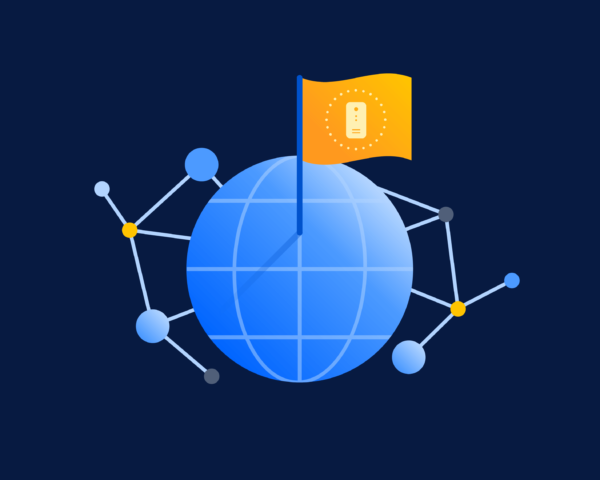Digital transformation is the latest buzzword in technology, but beyond headlines and news cycles, the concept represents a real and fundamental change to the way teams work and how organizations deliver value to customers. Modern businesses change quickly, and most organizations are perpetually looking for new ways to take advantage of digital technologies to remain competitive. This includes financial services organizations, whose leadership teams are focusing on technology as a critical lever to responding to market trends and achieving future success.
Over the past decade, tech innovations have completely upended the financial services industry thanks to the introduction of new technologies like blockchain; the use of robotic process automation to manage claims; and the rise of mobile devices used for banking, payments, and investment platforms. Leadership teams are not using technology just to improve the products and services they provide, but also as a platform to better deliver those products and services.
Almost half of global financial services organizations are still in a very early or even immature stage of their digital transformation journey
Gartner
In fact, many financial services institutions have highlighted our products as critical components in their digital transformations. Atlassian solutions make information more accessible within their organizations, allow employees and business partners to self-serve, and support newly digitized processes.
Let’s unpack some of the top challenges our financial service customers are looking to address as they undergo these transformations to their processes and tools.
Adapting to a truly global economy
Since the 1980s, several forms of deregulation have been implemented within the financial services industry, and this deregulation has been gaining momentum since the late 1990s. As a result, many financial services organizations have sped up their global expansion efforts. While the majority of hubs still tend to be concentrated in places like New York, London, and Singapore, the majority of these institutions now have teams and offices in other cities around the world, in order to support customers worldwide.
While distributed teams bring many benefits, they can also bring challenges, particularly when it comes to ensuring your software is standardized across teams in disparate locations. For Atlassian Server customers, we often hear that as teams become more distributed, those located farther from the primary server typically experience performance degradation, which significantly impacts their ability to get work done.
To help solve this challenge, we’ve added a number of features to improve geo-performance of our Atlassian Data Center products. These features include support for a content delivery network (CDN) and, in Bitbucket, smart mirroring and smart mirror farms. Smart mirrors allow users to set up one or more live mirror nodes (or groups of these mirror nodes) to operate read-only copies of repositories in remote locations for teams to send requests to, rather than the primary instance. Thanks to these features, our globally distributed customers can be confident they’re supporting their teams equally.
Meeting security & compliance regulations
The financial services industry has always been heavily regulated. In the past decade, adoption of SOX regulations and sovereign governance codes has expanded around the world, while regulation reform has continued to extend to all sectors of the industry – and the nature of these regulations has only intensified and grown more complex. So it goes without saying that security and compliance are critical when it comes to the software these organizations are using to get work done. Financial services companies must ensure teams are accessing software using secure authentication and authorization protocols, meeting specific compliance regimes, or protecting their instance from external threats.
Atlassian Data Center products offer several solutions that mitigate these challenges. Advanced user management capabilities ensure employees have the right levels of access to the right systems, and features like SAML and OpenID Connect (OIDC) support help organizations meet industry standards and simplify authentication for IT teams. We are seeing many organizations adopt OIDC as a way to address some of their GDPR compliance requirements and PSD2 regulatory needs. The identity tokens used in OIDC allow information to be exchanged bidirectionally between third parties and Account Servicing Payment Service Providers (ASPSPs) to specifically help ensure compliance with PSD2 regulations.
In addition, allow-list and block-list capabilities ensure tools aren’t being abused. Upcoming improvements to auditing capabilities in Data Center products will also give admins better visibility into employees’ actions within the system, and ensure executives are confident in their organization’s abilities to respond to corporate compliance needs.
Whether your organization is at the beginning of its digital transformation or your journey is well underway, we recognize that financial services organizations have a specific set of needs, and our Data Center offerings address those needs. But don’t just take our word for it! Download our tip sheet to get recommendations from three of our financial services customers on how they scaled and leveraged their Atlassian products as a part of their digital transformation.


